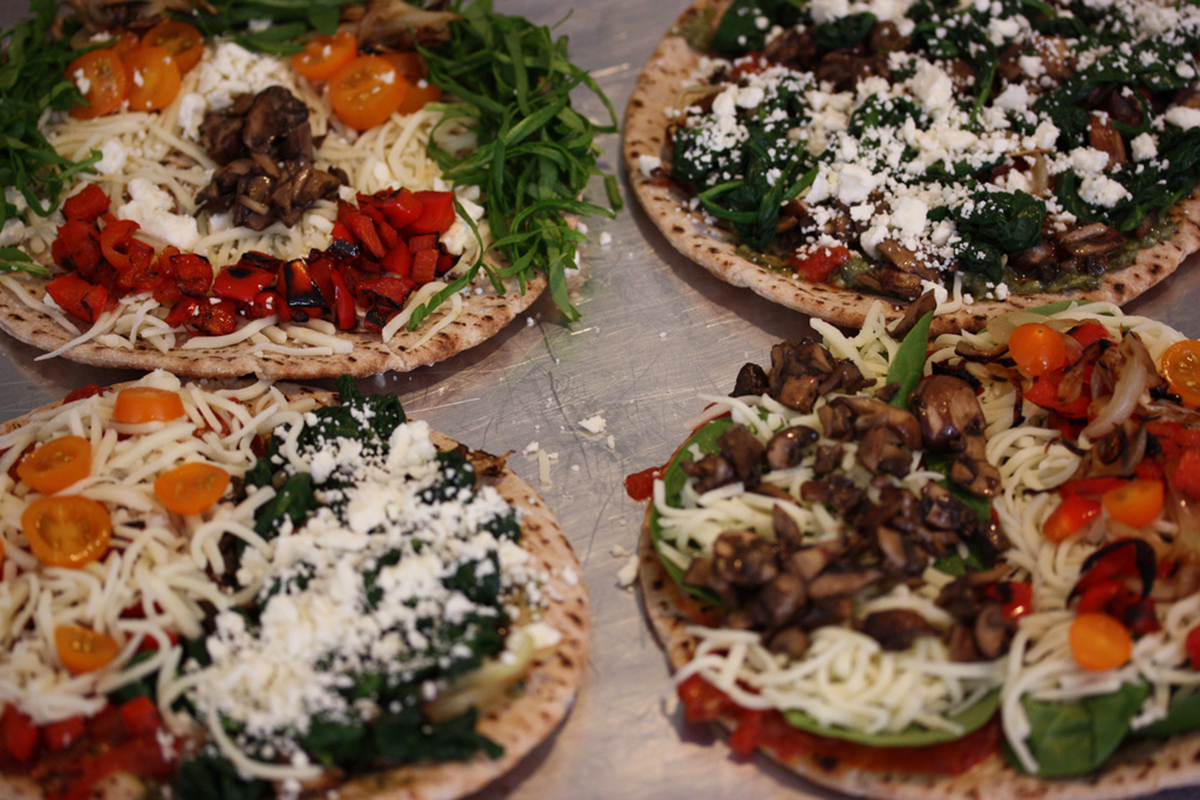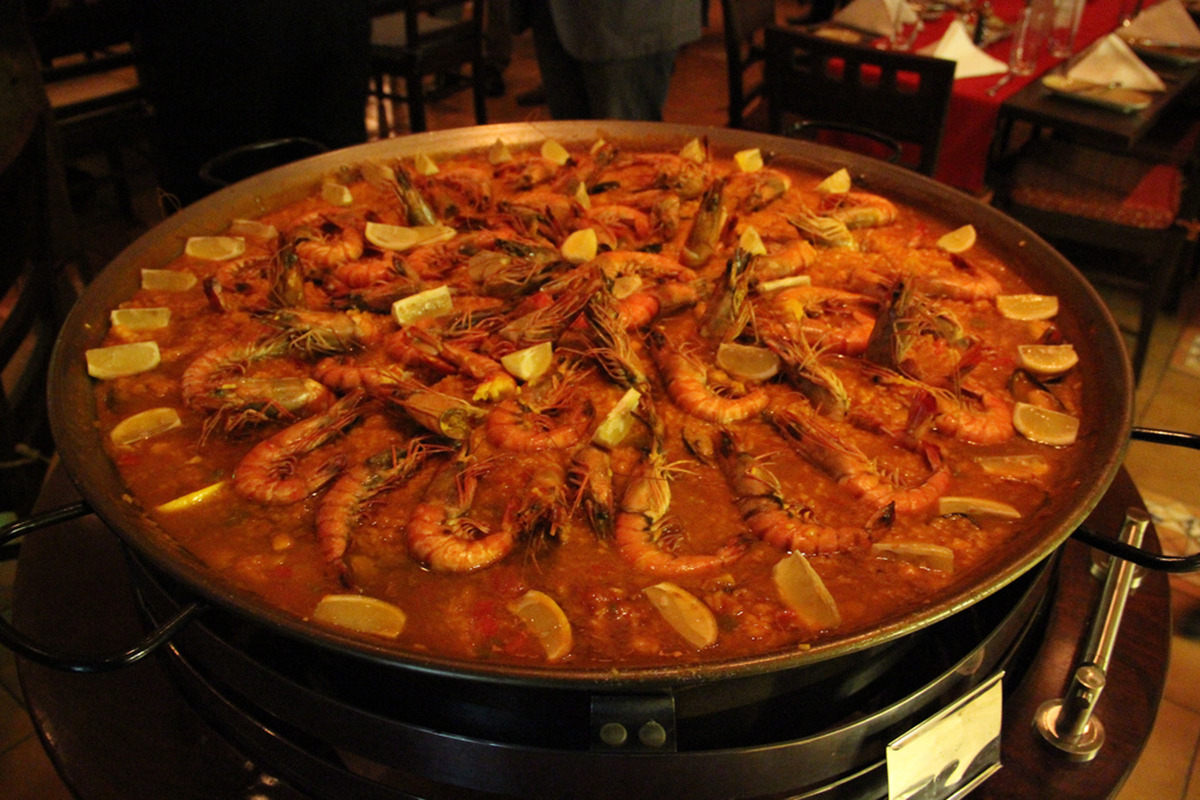People in Spain are diagnosed with Alzheimer's disease at a rate only about one-half that in northern Europe. Could the decisive factor be diet?
Diet makes a difference in whether you get Alzheimer's. Among people who have a genetic predisposition to senile dementia, simply eating less, a series of studies have shown, reduces the risk of ever developing Alzheimer's disease in the first place. Once Alzheimer's disease has set in, a Mediterranean diet slows its progress and keeps people healthier longer.

The Peculiar Probabilities Of Getting Alzheimer's Disease
The data on Alzheimer's disease defy a lot of "common sense" predictions about lifestyle and health. Highly educated people lose their cognitive abilities faster and die faster when they develop Alzheimer's. In the US, people of African-American descent are more likely to get Alzheimer's, but they are also more responsive to dietary changes.
The goal is not lose weight. The faster people lose weight once they have Alzheimer's, the sooner they die. Heavier people live longer when they have age-related dementia. The goal is to eat a nutritious diet, and a series of studies suggest that a Mediterranean diet is best for preventing and slowing the course of this scourge of old age.
What Is A Mediterranean Diet?
Most researchers characterize a Mediterranean diet as:
- High in fruits and vegetables. "High" would be five or more servings a day.
- High in legumes and whole grains. An average of one serving a day of each would qualify.
- Low in dairy product consumption, just one or two servings a day, and including mostly fermented dairy products (yogurt and cheese).
- Low in saturated fat consumption, high in olive oil consumption.
- Low in meat and poultry consumption, no more than a serving a day.
- High in fish consumption, three to five servings a week.
- Moderate in alcohol consumption, a drink a day, maybe two, with meals.
How Much Difference Does A Mediterranean Diet Make In Alzheimer's Disease?
Researchers at the Taub Institute for Research in Alzheimer's Disease and the Aging Brain at the Columbia University Medical Center in New York City have found that people of all races who eat a Mediterranean diet have less deterioration of DNA as they get older. The telomeres, which are long sequences of DNA that keep the two strands of the double helix lined up in the right order, don't break down as quickly in old age in people who eat more vegetables and less meat.
Whether this is the real way eating healthy protects the brain or not, the net effect of healthy diet on Alzheimer's patients was, on average, about five additional years of life. However, if the Mediterranean diet is started early enough, it can also give people about five additional years of relatively healthy life. This simple style of eating has been found to slow the progression of mild cognitive impairment (the "forgetting the car keys" stage of senile dementia) to full-blown Alzheimer's by several years. People who adhere to a Mediterranean diet are:
- 27 percent less likely to develop mild cognitive impairment and
- 35 percent less likely to develop Alzheimer's even if they do.
Eating delicious food seems like a small price to pay for staying mentally sharp. A Spanish diet approach, however, is even more productive.
What's Different About Your Brain in Spain?
North Americans often need to adjust their eating habits in Spain. In Spain:
- Breakfast is a small sandwich, or maybe tapas on toast, with a cup of coffee, eaten after eight in the morning but not after ten in the morning.
- Lunch (la comida) is the main meal of the day, eaten 1:30 pm to 4:00 pm. It's customary to eat slowly, relax, and enjoy the meal.
- Dinner is usually eaten around nine in the evening. It can be tapas, a successoin of small plates (larger than the French amuse-bouche, but smaller than an American appetizer), or maybe a light meal of a single dish.

The American researcher Jose Luchsinger, investigator in over 120 studies of Alzheimer's disease at Columbia University in New York City, and his colleagues once recruited 980 elderly people who did not have Alzheimer's for a four-year study. They gave their volunteers a blood test for the APOE-4 gene, which is known to be associated with an increased risk of Alzheimer's disease and also cardiovascular disease. They also surveyed their eating habits at the beginning of the study. At the end of four years, Luchsinger and the other researchers compared diet data to incidence of Alzheimers. What they found was that among people who had the gene for Alzheimers:
- Those who consumed the most calories had up to a 370 percent greater chance of developing the disease.
- Those who consumed the most saturated fat had up to a 390 percent greater change of developing the disease.
It seems to be a combination of unlucky genetics and bad diet that predisposes people to Alzheimer's. Some people who don't have the APOE-4 gene will eat "wrong" and still not get Alzheimer's. Some people who do have the APOE-4 gene will eat "right" and avoid the disease.
Overall, an average of just a couple hundred calories a day can make a four-fold difference in whether or not you get Alzheimer's. However, it is even more important, subsequent studies found, to give your brain a "break" from having to deal with sugar and fat all the time. Constant nibbling, snacking, and huge breakfasts and dinners mean the cells in your brain are always taking in nutrients and never getting a chance to repair or remove damaged proteins. Cells don't function as well, and their DNA falls into disrepair so that they can't ever undo damage done by diet, smoking, toxic chemicals, and injury.
To be sure, there are other countries in Europe and around the world that lower Alzheimer's rates even than Spain. Greece, Montenegro, Bulgaria, and Macedonia, where the local culture includes fast days, and Slovenia and Portugal, which have aspects of the "Mediterranean" diet have rates of Alzheimer's disease just a small fraction of those in Spain, as does Austria, where food is so expensive people eat less. The key to a healthy diet for your brain, however, is to eat more fruits and vegetables and less meat, and to avoid eating too much.
READ The Ten Biggest Mistakes You Can Make When Eating at a Restaurant
All it takes to avoid activating the gene that "causes" Alzheimer's may be just not to eat all the time, and not to eat a big meal more than once a day. Take your brain to Spain, literally or figuratively, and keep it healthy by eating delicious, healthy food in amounts that keep you looking forward to the next meal tomorrow.
- Gu Y, Honig LS, Schupf N, Lee JH, Luchsinger JA, Stern Y, Scarmeas N. Mediterranean diet and leukocyte telomere length in a multi-ethnic elderly population.Age (Dordr). 2015 Apr. 37(2):24. doi: 10.1007/s11357-015-9758-0. Epub 2015 Mar 8.
- Scarmeas N, Luchsinger JA, Mayeux R, Stern Y. Mediterranean diet and Alzheimer disease mortality. Neurology. 2007 Sep 11. 69(11):1084-93. PMID: 17846408.
- Photo courtesy of mealmakeovermoms via Flickr: www.flickr.com/photos/mealmakeovermoms/5691747851
- Photo courtesy of FOTOSHO-TO via Flickr: www.flickr.com/photos/clickme/10191478473


Your thoughts on this